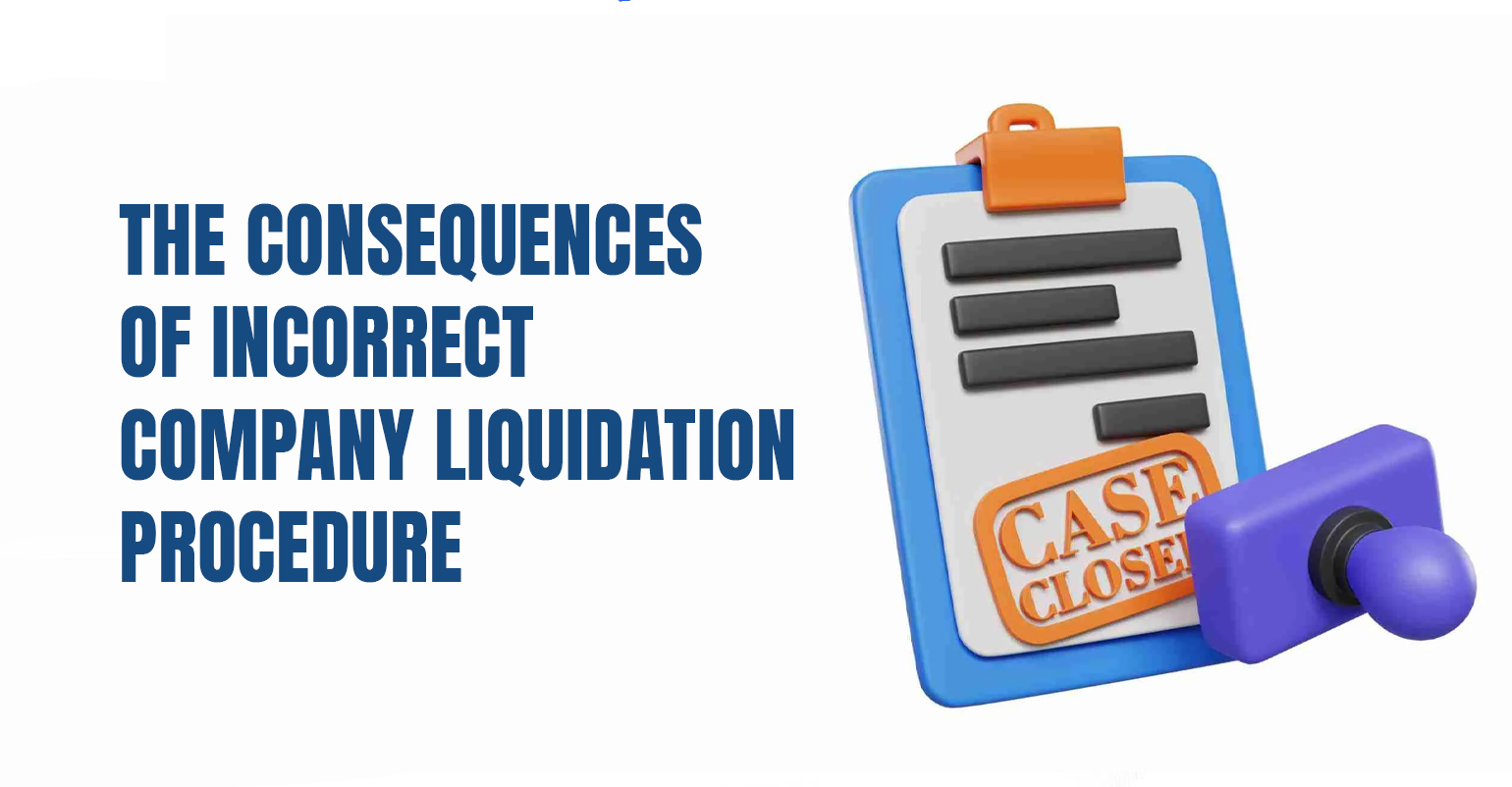Careful planning and adherence to legal protocols are essential for the complex process of liquidating a company. For business proprietors, directors, and creditors, the consequences of failing to adhere to appropriate liquidation procedures can be severe. This article from Excellence Audit & Accounting Services will investigate the repercussions of non-compliant company liquidation procedures and offer a perspective on the significance of adhering to the appropriate procedures to prevent these complications.
Major consequences of incorrect company liquidation
1. Potential Legal Consequences
One of the most substantial hazards associated with an incorrect company liquidation is the chance of experiencing legal consequences. Not adhering to statutory obligations, including filing requirements and notice periods, may lead to legal action being taken against the company and its directors. Fines, penalties, or even criminal accusations may be issued in severe cases. To prevent these consequences, it is essential to ensure that all legal procedures are adhered to accurately.
2. Financial Penalties
Improper liquidation procedures may result in substantial financial penalties. Mismanagement of assets during liquidation can result in financial losses by decreasing their value. Furthermore, neglecting to pay creditors or settle tax liabilities may lead to additional financial stress and potential legal action from tax authorities or creditors. Financial losses are minimized through the implementation of appropriate liquidation procedures, which guarantee the efficient management and distribution of assets.
3. Delay or Blockage in Liquidation
The liquidation process may be delayed or even stopped entirely due to procedural errors. Continuing to incur costs and liabilities can result in the company experiencing an increase in financial strain as a result of these delays. Delays also prolong the uncertainty for creditors, shareholders, and employees, which may exacerbate the financial and operational challenges the business is currently experiencing.
4. The Loss of One's Professional Reputation
Directors and liquidators run the risk of tarnishing their professional reputation by neglecting to adhere to appropriate liquidation procedures. A loss of trust among business partners, clients, and stakeholders can result from mismanagement or neglect during the liquidation process, as well as negative publicity. To ensure success in future business ventures, it is imperative to preserve a reputation for diligence and conformance.
5. The Potential for Legal Challenges
Incorrect liquidation procedures may result in legal challenges from a variety of parties, such as shareholders, creditors, and employees. The liquidation process may be challenged in court by stakeholders who believe that their interests have not been adequately protected or that it has been mismanaged. The liquidation process can be further complicated by the resulting protracted and costly legal battles.
6. Inadequate Asset Distribution
A critical aspect of liquidation is the guarantee of an equitable and comprehensive distribution of assets among creditors. Improper procedures can lead to an unjust or incomplete asset distribution, resulting in some creditors being unpaid or underpaid. This can not only erode the company's relationships with creditors but also lead to legal challenges and additional financial obligations for the directors and the company.
6. Inadequate Asset Distribution
A critical aspect of liquidation is the guarantee of an equitable and comprehensive distribution of assets among creditors. Improper procedures can lead to an unjust or incomplete asset distribution, resulting in some creditors being unpaid or underpaid. This can not only erode the company's relationships with creditors but also lead to legal challenges and additional financial obligations for the directors and the company.
7. Failure to Comply with Legal Requirements
Compliance with statutory obligations, including filing requirements and notice periods, is crucial for a seamless liquidation process. Noncompliance with these legal obligations may result in severe penalties, fines, and potential criminal charges. It is imperative that the liquidation process adheres to all legal protocols in order to mitigate the risk of legal action and ensure compliance.
8. The Results of Liquidation
Liquidation results are contingent upon the efficacy of the procedures implemented. Proper liquidation guarantees that the company's assets are equitably distributed, liabilities are resolved, and the company is dissolved in compliance with legal regulations. Liquidation may appear to be a detrimental result; however, it can offer a structured approach to terminating a business that is no longer viable, enabling the resolution of debt and the distribution of assets.
Is Liquidation Good or Bad?
We frequently get this question from our clients “Is liquidation good or bad”, the answer is liquidation is neither inherently good nor bad; its impact depends on the circumstances and how it is managed. The settlement of debts and the orderly distribution of assets are possible through liquidation, which can be a necessary resolution for businesses that are no longer viable. Nevertheless, legal, financial, and reputational repercussions may result from failure to implement appropriate liquidation procedures.
Conclusion
Proper liquidation procedures are indispensable. Choose Excellence Audit & Accounting Services to navigate the intricacies of company liquidation and prevent the severe repercussions of improper procedures. Our experience in
company liquidation services in Muscat, Oman, guarantees that the process is conducted with the utmost professionalism and compliance, thereby safeguarding your interests and facilitating a seamless liquidation.

